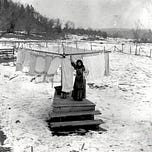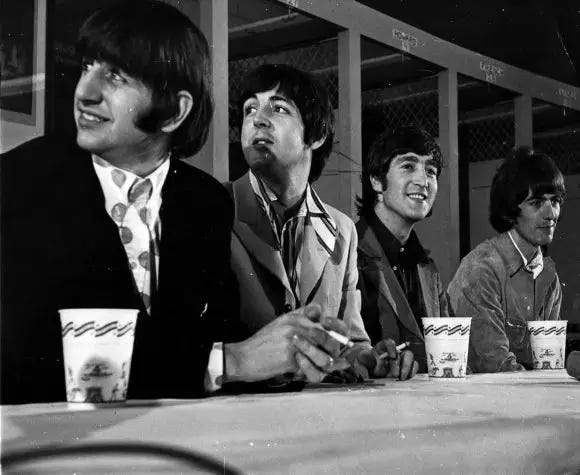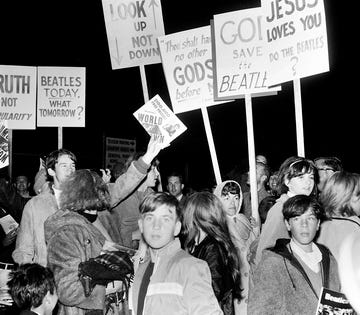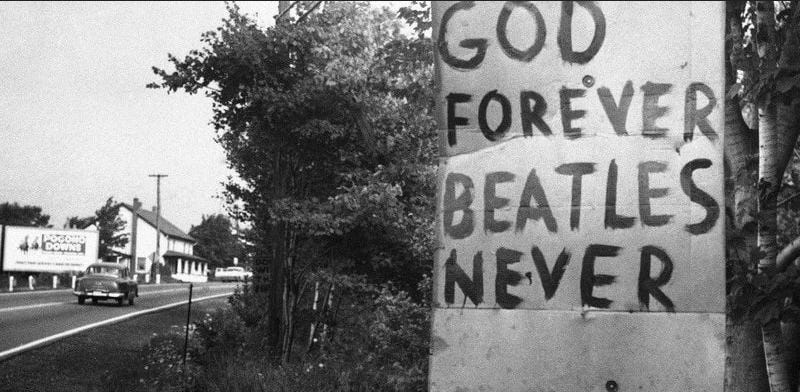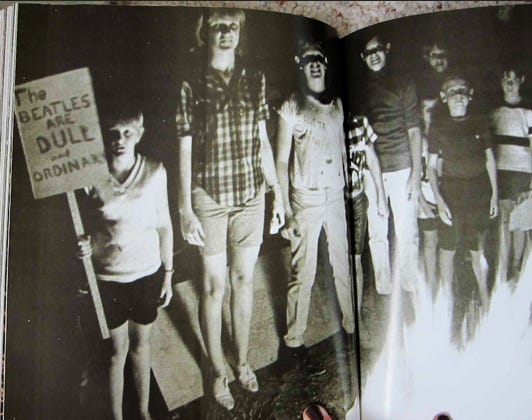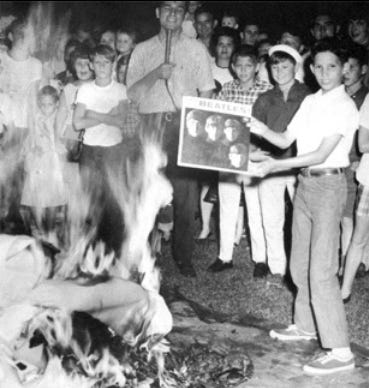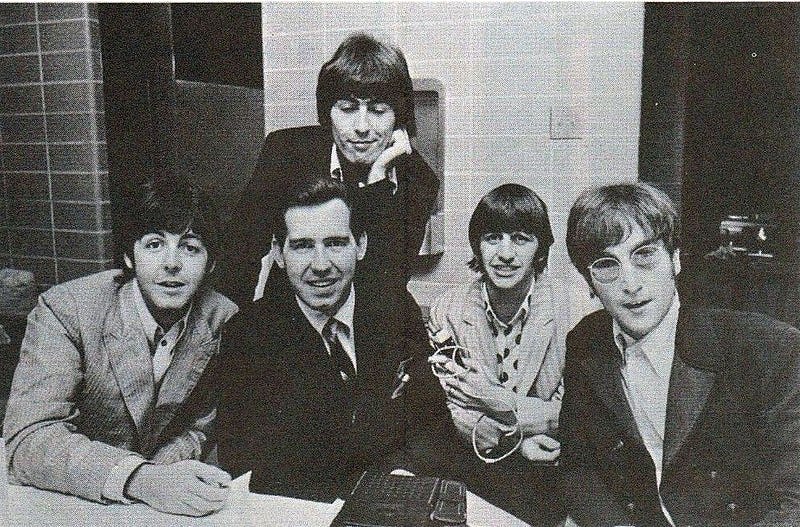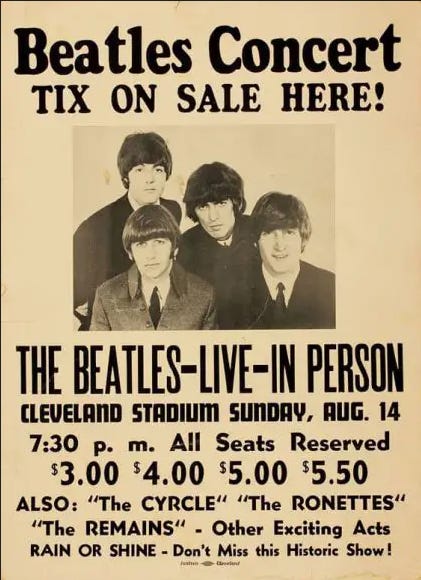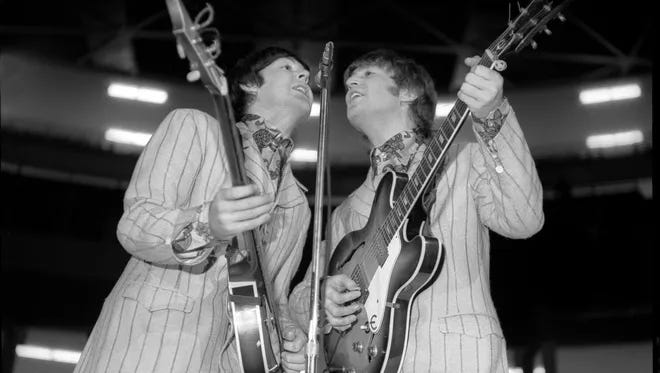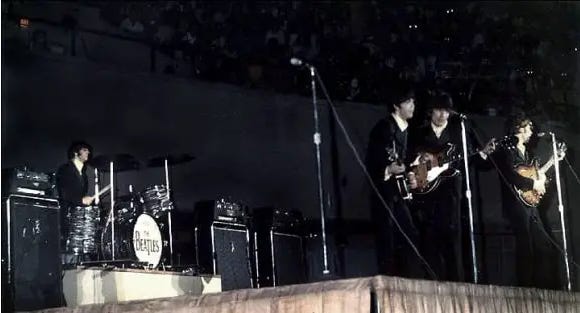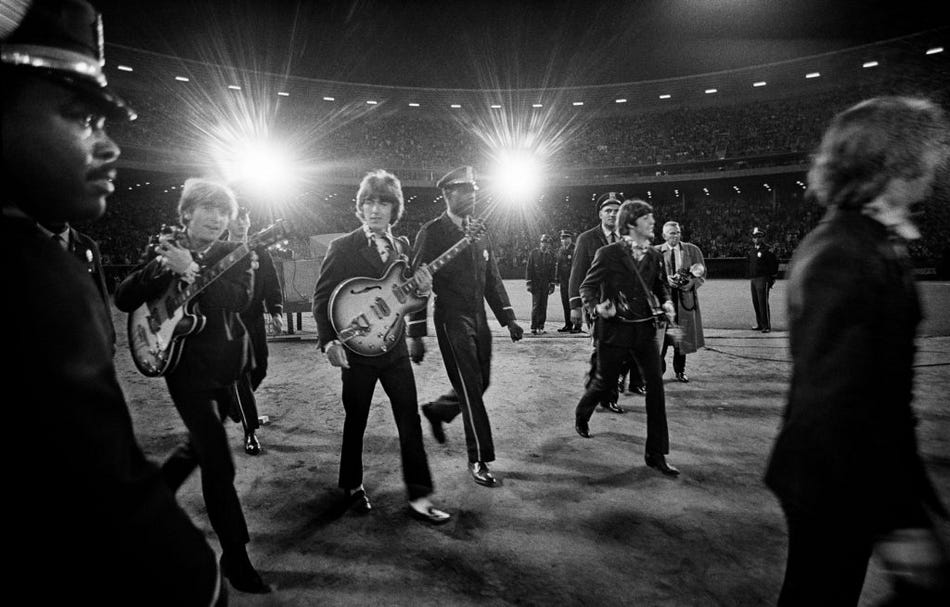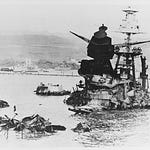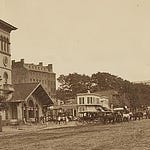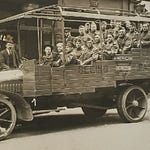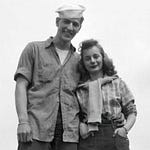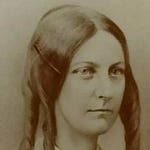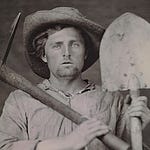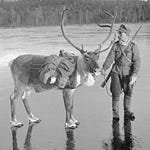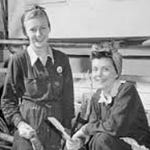‘More popular than Jesus.’
A big decline in church attendance was making news in Britain in March 1966 and twenty-five-year-old John Lennon commented on it during a long, rambling interview.
"Christianity will go.
“It will vanish and shrink.
“I needn't argue about that; I'm right and I will be proved right.
“We're more popular than Jesus now.”
Lennon’s comment drew little attention in Britain, but when an American teen magazine republished the interview with the Jesus quote on its front cover, it unleashed a firestorm.
Radio DJs across the Deep South’s Bible Belt saw the comment as a golden opportunity for them to grow their listening audience.
It was the ‘60s version of an unfortunately worded tweet and they pretended to be outraged.
It began in Birmingham with a DJ who launched a “Ban the Beatles” campaign on his morning ‘drive-to-work’ radio program.
He urged his listeners to send their Beatles albums and merchandise to his radio station.
He’d run them through a tree chipper and set them on fire.
The manager of Birmingham’s United Press International office was one of the DJ’s regular radio listeners, and he filed a story on the “Ban the Beatles” movement which appeared in the New York Times.
And everywhere else.
Within days, thirty radio stations announced they would stop playing Beatles music, and some organized their own Beatles bonfires.
Not to be outdone, some Klansmen in South Carolina nailed Beatles albums to a cross and set it on fire.
And an Alabama Klan leader gave a television interview claiming the Beatles had been brainwashed by communists.
Local television stations across the South were delighted.
People were tuning in to see their news coverage of the Ban the Beatles story.
But for the Beatles, the “bigger than Jesus” controversy cast a pall on the imminent release of their new Revolver album, which was scheduled to coincide with a three-week US tour in August 1966.
Controversy was sure to dog the tour; and the Beatles’ manager worried there might be violence.
So, he insisted that Lennon apologize publicly, and sincerely, in Chicago, their first concert venue.
And Lennon agreed.
He was worried that his words had placed his bandmates in danger.
"I wasn’t saying what they’re saying I was saying. I’m sorry I said it – really.
“I suppose if I had said television was more popular than Jesus, I would have got away with it. I'm sorry I opened my mouth.
“I'm not anti-God, anti-Christ, or anti-religion. I was not knocking it. I was not saying we are greater or better.
“I apologize if that will make you happy.
“I still don’t know quite what I’ve done.”
Paul McCartney later said he’d ‘never seen John so nervous.’
Picketers, including some Klansmen, appeared outside the Beatles’ concert venues, nonetheless.
But Lennon’s apology had taken most of the steam out of the Ban the Beatles movement.
Extra precautions were taken during the tour to keep the Beatles safe — Beatles decoys, extra police, confinement to their hotel — but their three-week stay in America was frightening.
Ringo Starr:
“It was a pretty scary time.
“John had to apologize, not for what he said, but to save our lives because there were a lot of very heavy threats — not only to him but to the whole band.”
Then, at the Beatles’ Memphis show, a cherry bomb exploded in the audience during one of their songs.
The Beatles looked at each other on stage, fearing one of them had been shot.
Relieved, they finished their song, then quickly left the arena.
After their last scheduled show in San Francisco, the Beatles never toured anywhere again.
******************************
I’ll see you tomorrow.
— Brenda


